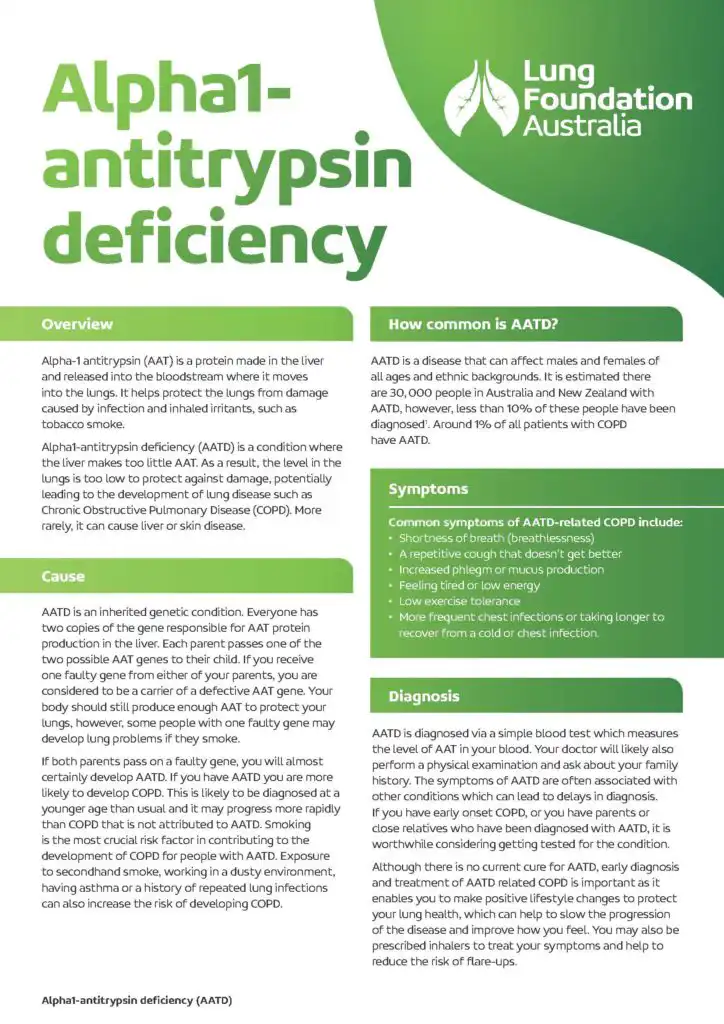The Alpha-1 Antitrypsin Deficiency (AATD) Factsheet is an essential resource for individuals, caregivers, and healthcare providers looking to understand this genetic condition that affects lung and liver health. Alpha-1 antitrypsin (AAT) is a protein made in the liver and released into the bloodstream where it moves into the lungs. It helps protect the lungs from damage caused by infection and inhaled irritants, such as tobacco smoke. AATD is a condition where the liver makes too little AAT. As a result, the level in the lungs is too low to protect against damage, potentially leading to the development of lung disease such as chronic obstructive pulmonary disease (COPD). More rarely, it can cause liver or skin disease. AATD is a disease that can affect males and females of all ages and ethnic backgrounds. It is estimated there are 30, 000 people in Australia and New Zealand with AATD.
Many people with AATD go undiagnosed, as symptoms mimic other respiratory conditions. This informative factsheet explains the causes, symptoms, diagnosis, and treatment options to help individuals take proactive steps in managing their health.
The factsheet explains that AATD is a genetic disorder affecting lung and liver function. The main symptoms of AATD-Related COPD include shortness of breath (breathlessness), a repetitive cough that doesn’t get better, increased phlegm or mucus production, feeling tired or low energy, low exercise tolerance, more frequent chest infections or taking longer to recover from a cold or chest infection. For diagnosis, a simple blood test can confirm AATD, especially in individuals with a family history of lung disease or early-onset COPD.
While there is no cure, strategies such as smoking cessation, vaccinations, pulmonary rehabilitation, and augmentation therapy (for eligible patients) can help manage symptoms and improve quality of life.
If you suspect you or a loved one has AATD, consult a respiratory specialist for testing and treatment options.
Was this page helpful?
Good job! Please give your positive feedback
How could we improve this post? Please Help us.
